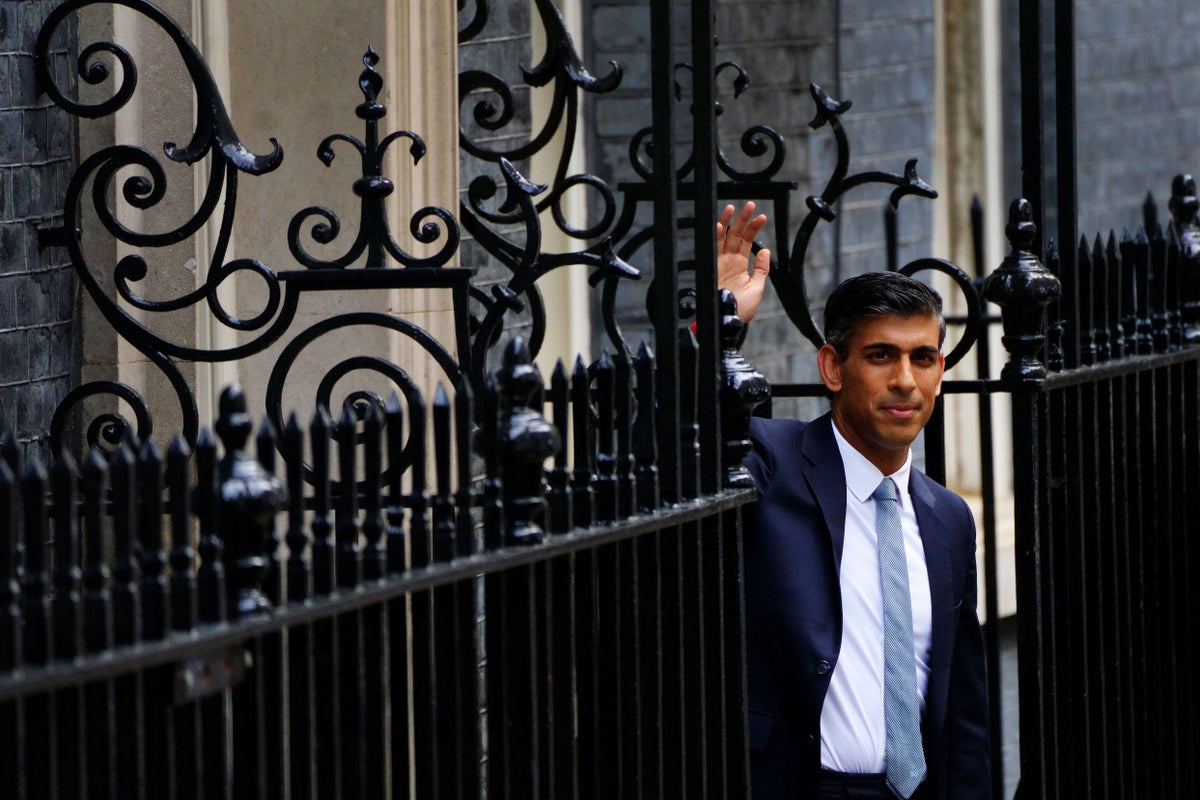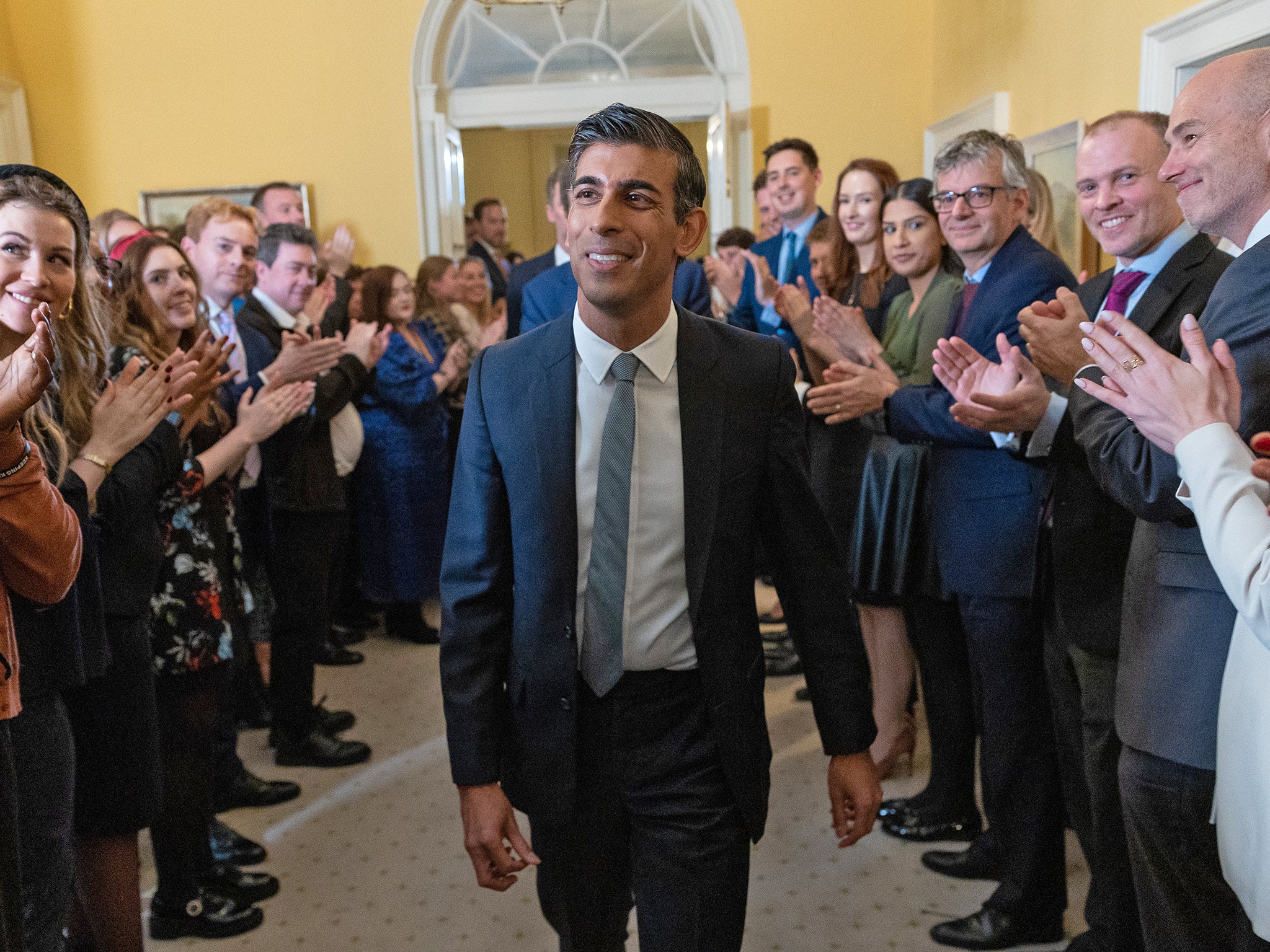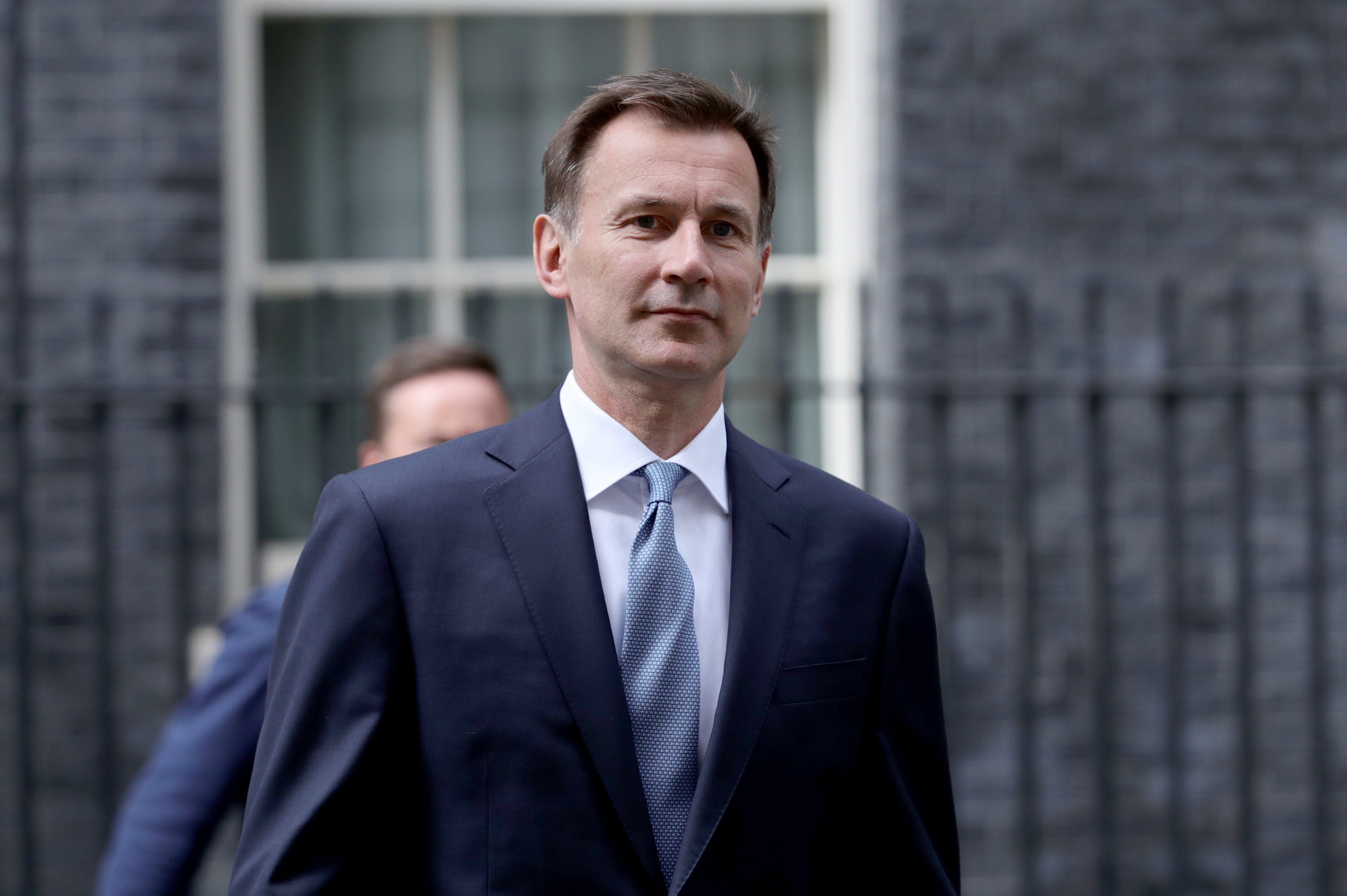
Rishi Sunak has succeeded Liz Truss as the UK’s latest prime minister, entering Downing Street on Tuesday with a grave warning that Britain is in the midst of a “profound economic crisis”.
Speaking outside No 10, he said that there are “difficult decisions to come” in a clear indication that tax rises and public sector spending cuts are on their way in chancellor Jeremy Hunt’s medium-term fiscal plan, which is now due to be delivered on Thursday 17 November.
Mr Hunt, who was only brought in on 14 October by Ms Truss to replace the unceremoniously sacked Kwasi Kwarteng, needs to find up to £40bn to fill a giant black hole in the national finances created by the Covid-19 pandemic and, in part, by the “mini-Budget” unveiled during the comically short-lived Truss-Kwarteng alliance, which so spooked global markets and has wrought such chaos over the last month.
Do you want a general election?
Mr Sunak made clear in his address that he is ready to impose austerity measures to balance the books, declaring: “The government I lead will not leave the next generation, your children and grandchildren, with a debt to settle that we were too weak to pay ourselves.”
He promised to honour Conservative pledges to deliver “a stronger NHS, better schools, safer streets, control of our borders” and to play an active role in “protecting our environment, supporting our armed forces, levelling up and building an economy that embraces the opportunities of Brexit, where businesses invest, innovate, and create jobs”.
Acknowledging the national uncertainty over the rising cost of living, Mr Sunak said: “I fully appreciate how hard things are. And I understand too that I have work to do to restore trust after all that has happened. All I can say is that I am not daunted.”
The markets have responded warmly to Mr Sunak’s anointing as Britain’s new PM so far but whether the public will trust him to fix an economy that he himself has been in charge of for two-and-a-half as Boris Johnson’s chancellor – admittedly during the exceptional and exceptionally trying circumstances of lockdown – remains to be seen.
Whether a super-rich Brexiteer, an expensively educated former banker and hedge fund manager at that, can truly understand the problems of impoverished people forced to choose between heating and eating this winter is another pointed question he will have to answer, although he has pledged “compassionate” governance.
Righting the economy will clearly need to be Mr Sunak’s top priority in No 10, with many fearing a return to the discredited austerity programme of the George Osborne years.
Scotland’s first minister Nicola Sturgeon, for one, has already called out what she fears will be a “horror show” of cuts being imposed on her nation by yet another Conservative leader in London with no mandate from the electorate.
Tony Danker, director-general of the Confederation of British Industry, has likewise warned Mr Sunak he must avoid a “doom loop” of tax rises and austerity cuts to the public sector.
“Let’s remember, the 2010s began with some austerity and were then ensued with very low growth, zero productivity and low investment, right? It wasn’t a successful strategy for growth,” he told BBC Radio 4’s Today programme on Tuesday.
On Mr Hunt’s upcoming autumn statement, Mr Danker added: “If all there is is tax rises and spending cuts and there’s nothing in there about growth, the country could end up in a similar doom loop where all you have to do is keep coming back every year to find more tax rises and more spending cuts because you’ve got no growth.”

Also issuing a stark assessment of what might result was City economist Thomas Pugh of RSM, who cautioned on Monday that the new PM’s fiscal responsibility pledge could only mean more austerity, which, combined with the cost of living crisis, threatened to lead to a longer recession than has already been forecast, even if it does succeed in bringing inflation down from its present 40-year high and reduce the need for further Bank of England action on interest rates.
“For now, financial markets will be watching the new PM very closely and will be wanting to see evidence that he intends to stick to the message of fiscal discipline that he set out in the previous leadership campaign,” Mr Pugh said.
“Any signs of straying off the path of fiscal discipline are likely to spook financial markets and result in another drop in the pound and surge in gilt yields.”
It is too soon to say precisely what steps Mr Sunak will take in office on matters like national insurance or the future of the energy price cap freeze.
But, even after Mr Hunt rolled back almost all of the tax-slashing initiatives in the Truss-Kwarteng mini-Budget, that ominous hole at the heart of Britain’s finances continues to loom large.
Trimming back government expenditure is likely to be a key early emphasis but risks setting up possible running battles with Tory MPs reluctant to face further budget cuts in their departments.
Defence spending could be a target, the former chancellor having appeared to prefer keeping it at 2 per cent of GDP until 2030 as a leadership candidate, rather than raising it to 3 per cent as Ms Truss intended, a move that would save a projected £157bn in the interim.

That could ultimately have an adverse impact on Britain’s popular but costly and ongoing commitment to supporting Ukraine, however.
He might also be inclined to scale back major infrastructure projects, although broken promises on hospitals and railway lines – with the NHS under duress and train strikes never far away – are unlikely to yield popular and stable government.
As Mr Danker suggests, reining in spending alone will not be enough to return Britain to rude economic health so Mr Sunak will also be required to echo Ms Truss’s call for “growth, growth, growth” even if he goes about encouraging it in a completely different manner (as he would be well advised to).
This could take the form of backing controversial policies he has previously appeared lukewarm on like fracking (popular with the right of his party), scaling back environmental reforms or relaxing planning rules, regardless of their long-term consequences.
Whatever happens next, The Independent’s Sean O’Grady is surely right to caution that the new PM does not truly represent a break with the past or a meaningful fresh start.
“The cuts Sunak and Jeremy Hunt are about to inflict on the nation didn’t just come from global trends, but from the self-inflicted harm of Brexit,” he argues.
“They also derive from the mistakes made by Tory governments for more than a decade: from Osborne slashing infrastructure spending, to the waste and fraud during Covid (on Sunak’s watch), to the disastrous Truss mini-Budget.”







